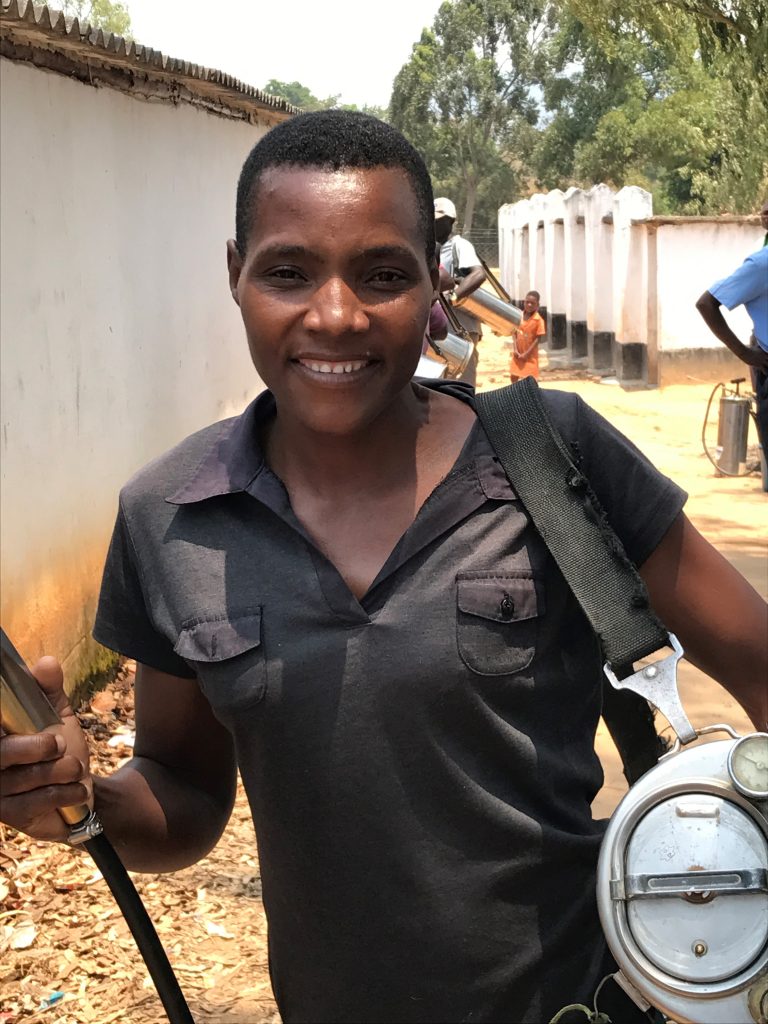In the small village of Chitakatira in Zimbabwe’s eastern Manicaland Province, Tsitsi Kupangwa has worked as a community health volunteer (CHV) for the past nine years, relying on her income through farming to support her family. Yet several years of drought have resulted in low yields and limited income. Despite bumper crops in 2017, ongoing cash shortages in Zimbabwe have led to dwindling sales. People simply don’t have the cash to buy her crops. As a result, she and her husband struggled to provide for their four children. Although she has been able to trade her produce for some goods, many other goods and services, such as education fees for her children, require cash.
In 2015, when Tsitsi heard about employment opportunities with the U.S. President’s Malaria Initiative (PMI) Africa Indoor Residual Spraying (AIRS) Project, she applied in hopes of generating extra income. It was a win-win situation when she was hired as a washer for the Mutare District spray campaign. With a high school education and her experience as a CHV, Tsitsi was soon recognized as an asset by the district indoor residual spraying (IRS) coordinators. Within the same year, Tsitsi was promoted to be a spray operator when district IRS coordinators asked her to replace an underperforming spray operator. She became one of the most productive spray operators in the district. Tsitsi uses her skills and experience as a community health volunteer and the IRS training she received through the project to change the attitudes and behavior of community members who resist having their homes sprayed.
The following year, Tsitsi continued to rise the ranks, training as an IRS team leader who manages and supervises a team of four spray operators. Her work with IRS has really paid off. With the PMI AIRS Project’s eco-cash mobile payments, Tsitsi receives her income through her mobile phone. The mobile payments allow her to send the money electronically to pay for her children’s exam fees and to buy more seeds for her crops. As Zimbabwe’s cash crisis continues, the mobile payments ensure she can use her earned income immediately rather than having to stand in long lines at banks to cash a paycheck.
Tsitsi said that she will continue to work for the program because of the importance of protecting communities from malaria and because of the extra income she earns for her family.
This story was taken from www.africairs.net.

